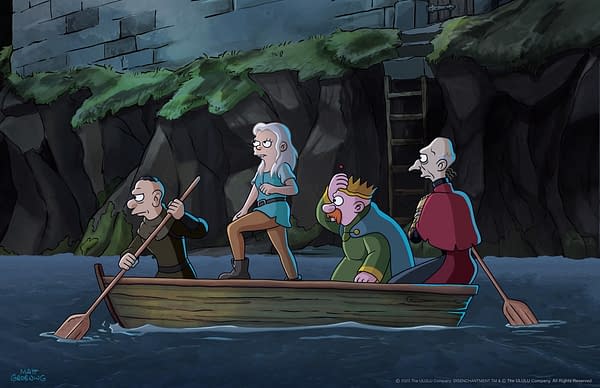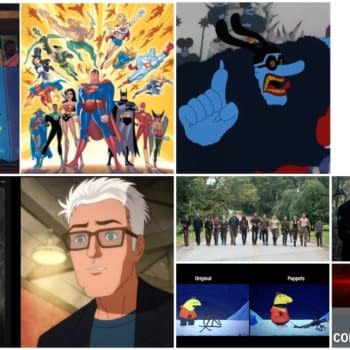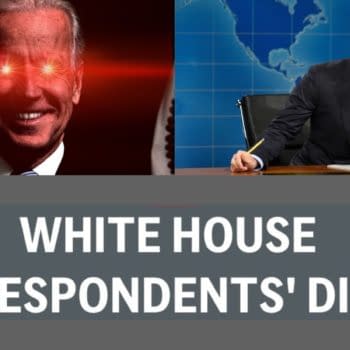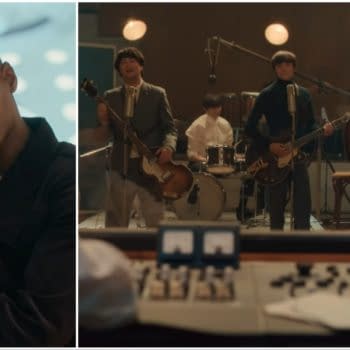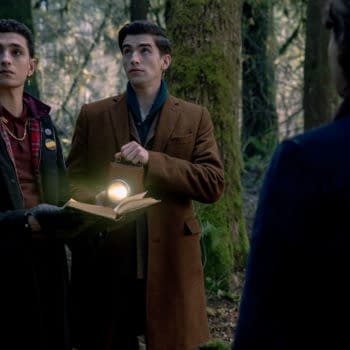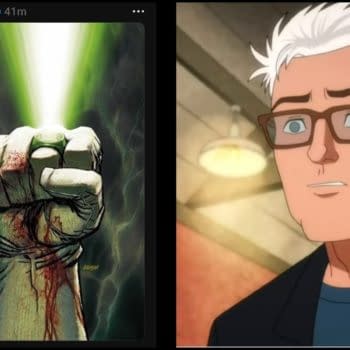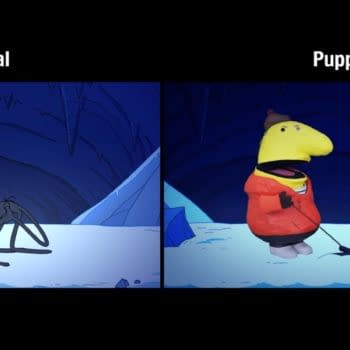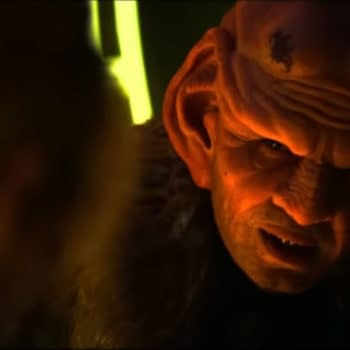Posted in: Netflix, streaming, TV | Tagged: disenchantment, matt groening, netflix, SAG-AFTRA, wga
Disenchantment Artist's Sobering Thread on Need for Artistic Credit
An artist on Disenchantment offered sobering insight into how getting proper artistic credit can be an uphill climb in the animation industry.
As the SAG-AFTRA and WGA strikes continue to roll on – with no serious effort on the AMPTP's part to reach agreements with both unions – a much larger conversation has also been taking place regarding other areas of the pop culture landscape and their need for comprehensive union protections. One area, in particular, that's been left out of many of the industry's labor improvements over the years has been the animation industry. Now, Joe MbGroro (Disenchantment) is sharing his experience when it comes to artists receiving the proper credit for their work – and making sure that credit is shown on the screen. In the following thread, MbGroro reveals what he learned about the process, how it's painfully lacking when it comes to protecting an artist from not being publically credited for their art, and what can be done to make things run smoother moving forward. For those of you not familiar with what the animation creative community has been dealing with, the following read is definitely worth your time.
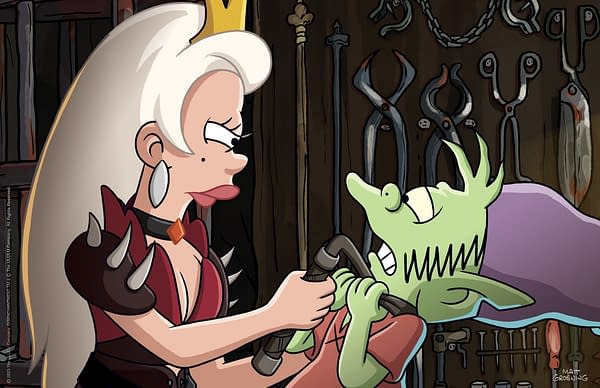
Here's a look at the opening and closing comments, followed by a text of the thread in its entirety:
Last May, after several coworkers had found out they were not being credited for certain episodes of Futurama and Disenchantment, I spoke to the heads of Rough Draft Studio to try to correct the issue. They were open to discussion, but had some mixed up ideas.
Their thought process was one of equity – it wouldn't be fair to offer the same credit to someone for working on 1 design versus someone who had worked on 20. They were working under the notion that screen credit was at their discretion. They were wrong, but not entirely.
While The Animation Guild contracts are amazing in a lot of ways, in certain areas they can be limited in scope, poorly worded, or not inclusive enough of every job they cover. This is the case with Article 21 Section B covering screen credits.
Article 21 B. Screen Credit: Screen credit shall be required to be given only to the classifications of animation, story, background and layout in theatrical pictures and in television pictures of one-half (½) hour or longer network shows which are now non-segments. Credits shall be given on a per-picture or per-show basis for work performed.
Already you can see some cracks.
While yes, screen credit is required for certain classifications, what positions are included in these classifications? Does timing fall under animation? Is color under background and layout? Are writers under story?
I brought up these concerns to various members of the Guild and you'd be surprised by how many weren't sure if their positions were covered, or were surprised to find out they weren't covered at all. Not to mention when we finally found answers, there was still some debate.
This is where the Guild contracts rely on "good faith" action by the studios, which in a lot of cases works out, but not always. As is the case with Rough Draft here.
Yes, in my case, screencredit was required. I believe my omission was a mistake, but it didn't start out as one.
The initial plan was to leave me out because they knew that some screencredits were at their discretion. They were wrong as to which ones.
When I brought this up to them back in May, we had a good discussion and the studio contacted the Guild first for clarification.
As far as I'm aware, the studio is on the path to crediting every role properly moving forward, but again, this is in good faith and with no protections for artists who were previously left out.
Article 21 continues:
In any screen credit dispute under this section, the parties will refer any unresolved disputes to the President of the I.A.T.S.E. (or his designee) and the Head of the Labor Relations Department of the affected studio for adjudication. The decision of the adjudicators is final and is not subject to grievance and arbitration procedures.
There are no fines, there is no responsibility. It will be disputed and credit will be applied. But how?
Once an episode airs, it is extremely unlikely to change. Contract studios like Rough Draft can not pull an episode and update, but have to ask streaming services or networks if they can update them. Sometimes, it's too much work or they just don't want to.
So instead, at Guild direction, our best options are to ask for a credit letter from the studio to have on hand and prove we contributed to the episode, or edit the imdb page ourselves. That's it. Despite a contract violation, there's nothing more to do.
For me, screen credit is a validating bit of recognition. I can watch the episode and say, "Look that's me! I worked on this. I can stand shoulder to shoulder with my co-workers. I've earned this".
For others, it can be a defining part of their career when others see their name.
As of right now, the wording of Article 21 section B is limited. It covers "only" certain classifications, can not list which positions fall under those classifications plainly, and leaves too much wiggle room for studios to act at their discretion at the artists expense.
What I would love to see is Article 21 Section B updated in the next round of negotiations to include language similar to "Screen Credit shall be required for all persons who contributed to theatrical pictures and in television pictures of one-half (½) hour or longer".
I want it clear that all people deserve credit for all work, as that's currently how The Animation Guild tries to operate and encourages studios to act.
The issue is one of clarity and giving studios options.
Are there bigger issues than this right now that need to be addressed? Yes. Absolutely.
But with AI flailing about threatening positions and hiding the work that was scraped to create it's own product, proper artist credit is becoming a serious issue.
Not only that, but it's also one that can be easily remedied. Most studios adhere to proper credit for all artists. It costs them nothing. It can and should be an easy win in negotiations that would go a long way in servicing our community and combating content scraping.
Uncredited work is all over our industry. It's all over every animation industry. Oftentimes entire contract studios overseas are left out of screen credits, and you will almost never see their workers names.
We can do better.
If you are a TAG worker who has ever been left out of screen credit, I encourage you to talk to your committee chairs about it. Bring it up, express concern, and let's get a discussion going now before negotiations next year.
If you work under a different union and are concerned about screen credit, I encourage you to read your contract language and bring it up to your own chairs.
Animation is a strong industry and one that has been growing larger every year. Times are difficult, but we've always been united. Let's stick together not just in person, but in the credits as well.
